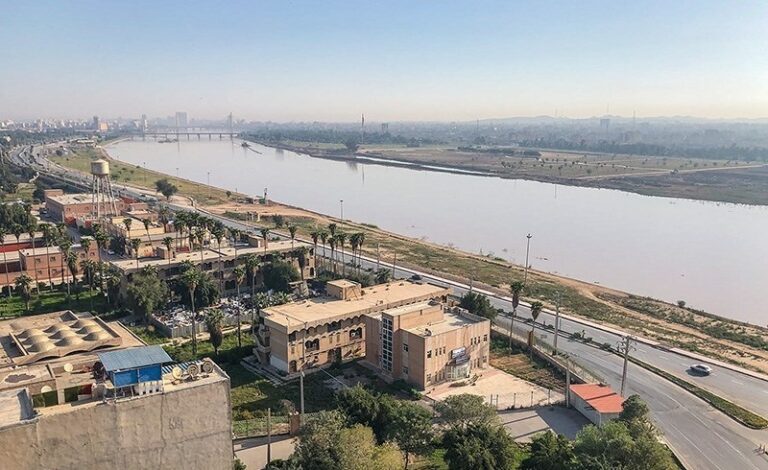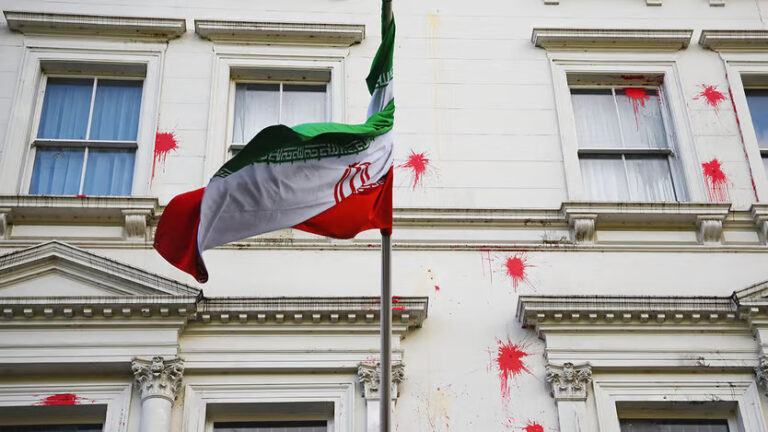
According to many, this gathering was first of its kind where people belonging to all nation groups in Iran were represented at the conference.
Persians, Azeri Turks, Kurds, Baluchis, Ahwazi Arabs and Turkmens attended the conference to hold a two day dialogue to draft a common agenda. There were heated exchanges between oppressed nationalities who favour a decentralized state in Iran and the dominant Persians who fear that decentralization will lead to the break-up of the country.
The conference was held on the anniversary of last year’s tumultuous protests that led to widespread anti-regime demonstrations rarely seen in the last thirty years of regime’s reign.
Dr. Manouchehr Ganji, the ex-minister in the previous regime was the leading organizers of the conference. He criticized the Persians at the conference for their fear mongering rhetoric in regards to Iranian territorial integrity and complained about the lack of any initiative from the Persians to hold the country together without force.
He stated that federalism is the best form of government for the future of Iran after the current one that can accommodate the wishes of all the nationalities within a unified and integral Iran.
Sharif Behruz, the Democratic Party of Iranian Kurdistan Representative to the US was also one of the speakers at the conference who argued for a federal system for Iran and stated that “if we want to live together, we must construct a political and legal framework that will accommodate the equal rights of all and places equal responsibilities on all, and in the opinion of Democratic Party of Iranian Kurdistan, a federal democratic system is the ideal political framework that can realize all these objectives.”
Dr. Karim Abdian, an Ahwazi Arab and the representative of Congress of Nationalities for Federal Iran –another coalition of Iranian opposition groups advocating federalism – also spoke at the conference and reasserted his organization’s determination to establish a decentralized, democratic and secular form of government with a federal structure.
The two-day long conference approved a resolution to start a campaign “demanding that the United Nations Credential Committee reject the Credentials of the Representatives of the Islamic Republic of Iran to the sixty-sixth session of the UN General Assembly taking place in September 2010.”
The Conference also adopted a resolution stating “We, the participants of Iran Freedom Unity conference belonging to different cross sections of the Iranian Society, be it Fars, Turks, Arabs, Baluchis, Kurds, Turkamans, etc., who have lived together in our country Iran for centuries, supportive of the territorial integrity and sovereignty of Iran are united in our opposition against the brutal, misogynic, totalitarian regime in Iran;”
The Resolution suggests a decentralized federal state for Iran: “United in our support of the struggle of the Iranian people for democracy, respect of human rights and fundamental freedoms for all, equality of women and men and of all Iranians, pluralism, unity of all Iranians, separation of religion and state, decentralization and a federal state structure of government, social justice, elimination of all forms of discrimination – in law and in fact – abolition of any form of exploitation of people and respect for sovereignty and territorial integrity of Iran;”
The Conference elected a 13 member leadership council for the newly created Congress of Unity for Democratic, Secular and Federal Iran to take on the responsibilities till the next general conference.
Get Adobe Flash Player
© Medya News. All Rights Reserved.
Manage your email subscription:











+ There are no comments
Add yours